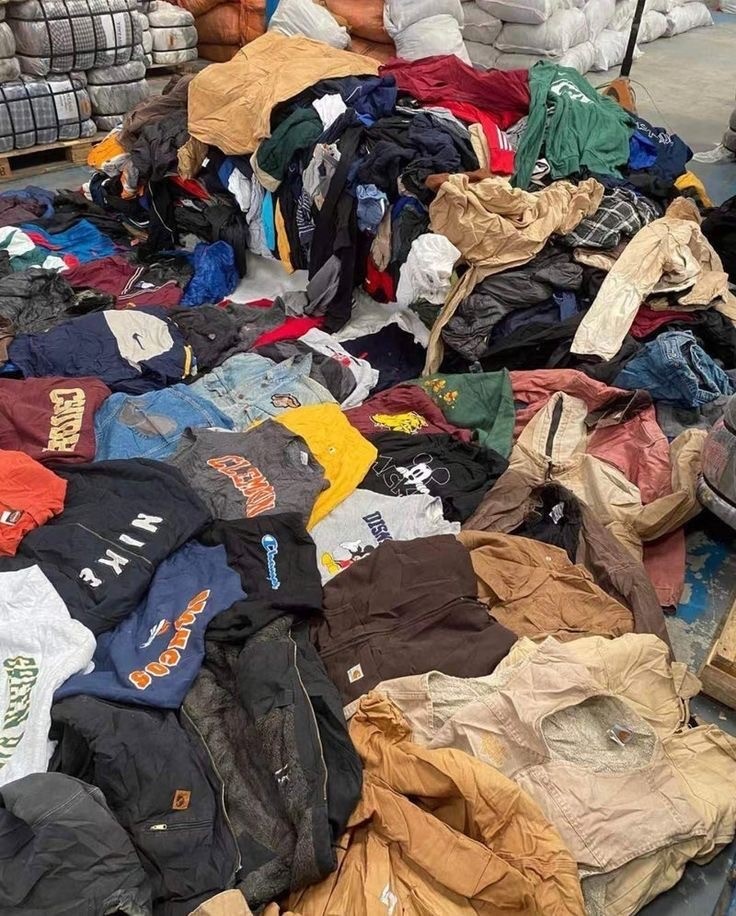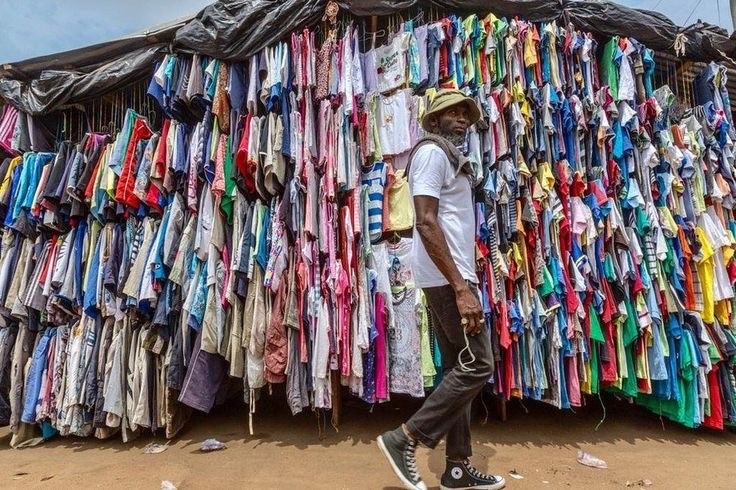Let’s revisit a period when some firmly pledged that they would never be caught at the marketplace stooping to bend, select and assess the prices of second-hand clothing. However, it’s crucial to recall the adage that if the mountain won’t come to Mohammed, Mohammed will go to the mountain.
Today, the technique of “bend down select,” also known as okirika and second-hand apparel, has been rebranded to reach us. This rebranding has convinced even the most discerning individuals to accept the polished label, “thrifting.” The phrase “thrift” helps to alleviate anxieties, allowing consumers to assume they are not engaging in the act of bend down selection, despite the stigma associated with such behaviour. While some view it as attire for the less privileged, others perceive it as a choice for those facing financial challenges.
“Bend down select” stands as one of Nigeria’s largest commerce industries, providing a means of livelihood primarily for women, though men have also joined the trade to sustain themselves and support their families. This traditional second-hand clothing business has evolved into a flourishing industry with significant profit potential. It has gained widespread acceptance as the most economical method of acquiring durable and diverse clothing, making it an accessible option for those with limited incomes. With its affordability, durability, and variety, people proudly proclaim ‘na mumu dey go boutique,’ highlighting the practicality and wisdom in choosing this economical and sustainable option.

Currently, people have found a method to stylishly wear second-hand clothing (‘okirika’) and revamp the associated buying and selling practices. The present adoption of thrift can be ascribed in great part to thrift sellers’ strong social media marketing methods.
Due of the popularity of social media, entrepreneurs can now brand their firms in ways that disprove stereotypes and appeal to their target consumers. For example, individuals can use platforms like social media to promote services such as professional cleaning for both residential and industrial spaces. Such posts receive positive engagement, with audiences praising the quality of work and making inquiries about the services offered.
This stands in stark contrast to the past when such jobs were often stigmatized as dirty and considered suitable only for the uneducated and illiterate. The shift in perception highlights the transformative power of social media marketing in reshaping societal views and attitudes towards various occupations.
However, it is impossible to ignore the possibility that this rebranding will cause more harm than benefit. Thanks to Instagram and tik tok merchants, there are no longer any stigmas associated with the sale of these things.
Social media has successfully revolutionised thrift shopping in Nigeria, introducing some aesthetics to what some people consider their typical mode of purchase. Yet, the current prices of these goods compete in an absurd manner with those of boutique owner. These merchants exploit justifications like packing and the expense of importing this good to raise the prices of their products.

This basically contrast with the whole idea of buying already used clothing items. This has prompted many to refrain from purchasing online and instead visit markets, where they can physically inspect and select items. Numerous videos showcase celebrities or foreigners thrift shopping in markets, inspiring many to follow suit. Some have taken steps to glamorize okirika shopping, showcasing their experiences through vlogs, try-on hauls, outfit ratings, and sharing ideas on the best places to thrift shop, among other aspects.
Moreover, the resurgence of the Y2K trend and the Nollywood fashion obsession has reintroduced a style from years past, with these outfits being elusive. People are aware of where they can acquire these things at a lower cost with higher quality. This means that buying thrifted clothing is about more than just saving money; it’s also about digging up and resurfacing previous fashion trends, and, most importantly, it’s about sustainability.
Nigerians exhibit a robust cultural inclination towards thrift, and emerging digital platforms are paving the way for financial inclusion and economic empowerment. These indicators suggest a promising future for the country’s thrift culture. Embracing technology can cultivate a positive outlook for individuals and communities, enhancing accessibility, efficiency, and trust in thrift practices.
Sources
- https://thelagosweekender.com/bend-down-select-is-in-again-return-of-okrika/
- https://www.humourandstyle.com/love-or-loathe-bend-down-select/
- https://culturecustodian.com/how-social-media-is-making-bend-down-select-cool/




